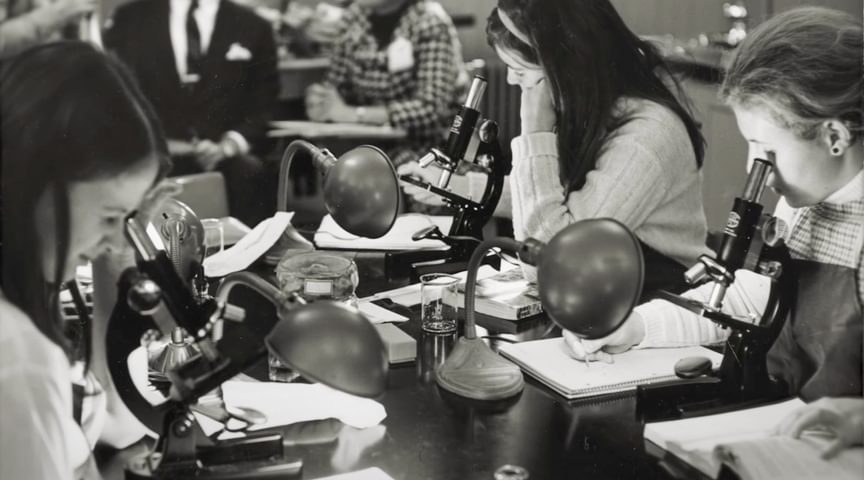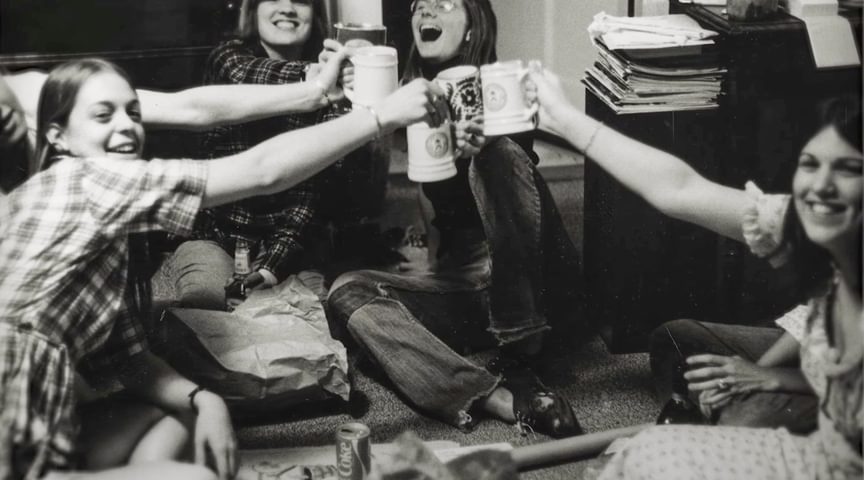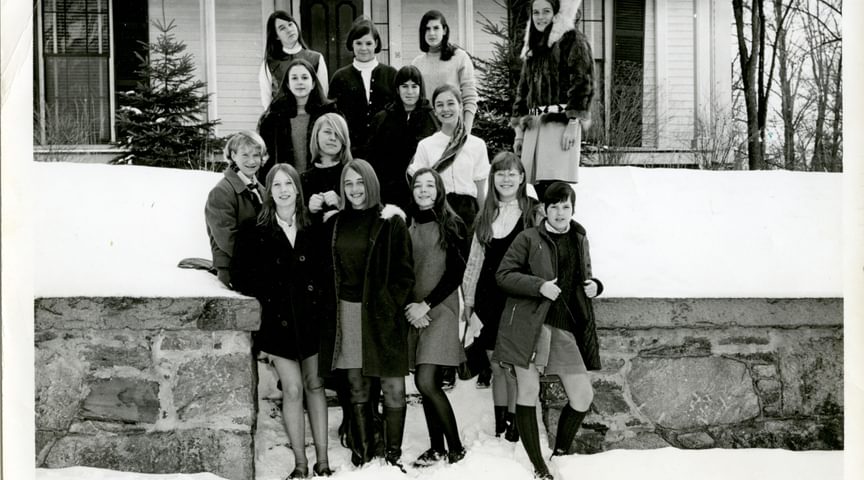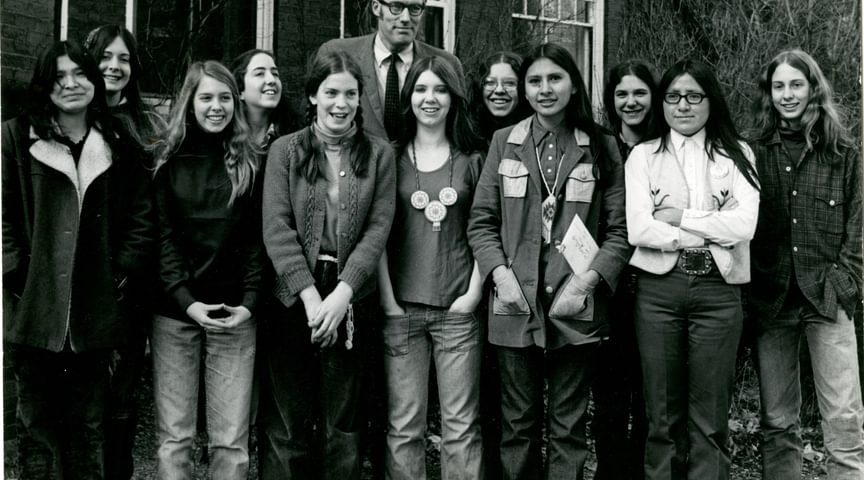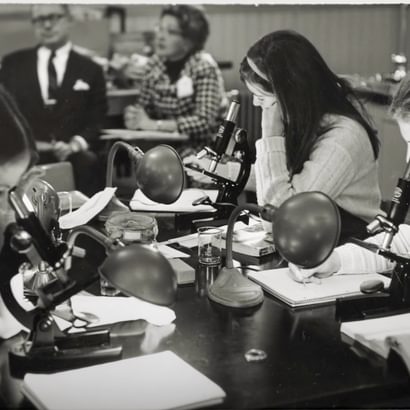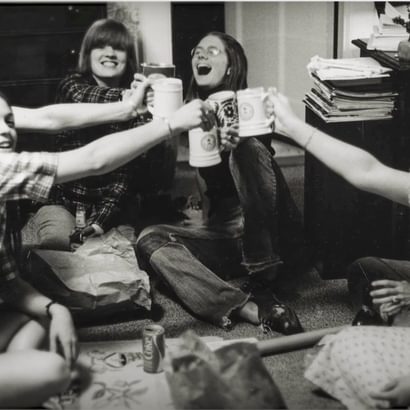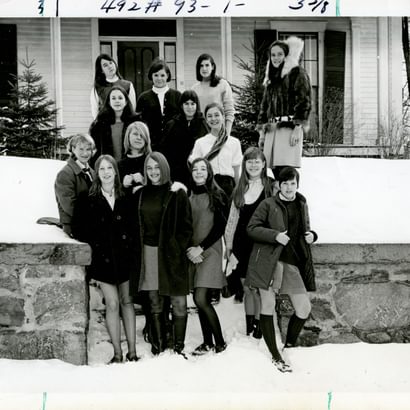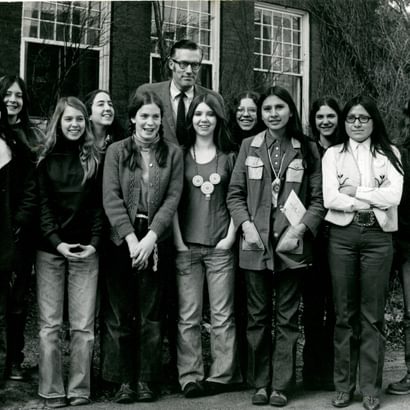
August 30, 2023
Abbot & Andover at 50: Then, Now, Next
Since 1973, Abbot Academy has been a catalyst for diversity and bold innovation in education at PAby Rita Savard & Joseph P. Kahn ’67
Then | The First Class: Women Blaze a Trail
Fifty years ago, America was divided on issues of war, race, and gender. But in the fall of 1973, it was gender that was top of mind when 300 young women—including all students from Abbot Academy as well as newly admitted girls—entered classrooms on the Hill as official Phillips Academy students for the first time.
“I think I was more aware than most of my classmates who came in 10th grade that PA and Abbot were likely to merge,” says Ann Blumberg Graham ’74. “I was intrigued by the all-male schools that my father and brother had attended that had recently admitted females. I was also naïve about what the transition—from coordinating education to full-on coeducation—would entail.”
When girls arrived on campus, they were outnumbered by boys three to one. And while the case for coeducation was rooted in a growing conviction that diversity jolts youth into cognitive action in ways that homogeneity simply does not, the reality was that in 1973, the country’s oldest boys’ boarding school was ill prepared to support females.
Girls experienced glaring inadequacies in instruction and athletics, and women faculty and staff struggled to build access to the same opportunities as their male counterparts.
“It was clear that the merger, which I’d rather call an absorption, threw a lot of Abbot girls into the crucible,” says Susan Clark, an instructor in Latin and Greek from Abbot who taught at PA for 12 years following the merger. “And fortunately, many of them absolutely performed perfectly. They changed a great deal of what was going on at PA.”
“Abbot Academy symbolizes what is possible. It’s a small campus, but an enormously tangible sign of the lasting impact that women’s education has made on Andover.” — BARBARA TIMKEN ’66, architectural historian, preservationist, and PA charter trustee (1988–2004)
Some faculty who had been opposed to the merger were stuck in a web of irrational ideology that girls could not learn calculus or understand the works of Virgil. They believed gender distinctions defined intellect and that men were innately superior leaders, innovators, and academics.
Girls like Graham, who experienced the best and worst of PA, were tearing down antiquated barriers as they demanded their rightful place in physical and social spaces that denied them for nearly two centuries.
Graham remembers being called on to stand at the front of the classroom and recite some of the bawdiest parts of Chaucer. “I did not flinch, but it was not comfortable,” she says. “My senior year, however, I had the opportunity to take the education seminar with our head of school, Ted Sizer. I felt like a leader in that class, and felt acknowledged by Sizer, who was a larger-than-life figure for me. To this day, reading a book he assigned—The Unheavenly City by Edward Banfield—remains a defining experience in my intellectual and personal development.”
In a 1975 essay for the Andover Bulletin, waggishly titled “If I only had a wife…,” faculty spouse Helen Eccles P’70, ’72, ’75, explained that, for places like PA, which had long been institutions dominated by white men, the battle for equity only begins when you open the door and let women in for the first time.
“It will take more time, more full-time women teachers, and more trauma in some minds and places before this place is truly coeducational,” Eccles wrote.
In those early years, Clark—who was infamously called “saeva femina!” (savage woman) by a male colleague at a faculty gathering when she asked for bourbon instead of sherry—notes how the experience of teaching girls in the first year after the merger changed some hearts and minds.
“A girl who ended up in the top of her classics class proved to her male teacher that yes, a woman could read Virgil and outperform the rest,” Clark says. “He later apologized for thinking anything less.”
“The impact of being part of a smart, interesting, and quirky community of women (like me) who not only understood but celebrated me for just being myself was huge!” — MARCIA MCCABE ’73, actress and longtime Andover volunteer
In 1983, a task force chaired by college counselor and former Abbot administrator Marion Finbury was charged with studying coeducation’s impact after 10 years. Using school records, survey research, and interviews, a comprehensive study was released, called “A Portrait of a School: Coeducation at Andover.” It was written by instructor in history and gender activist Kathleen Dalton P’00, ’05.
From faculty pay inequity to various gender disparities in student life, the thorough report called attention to the fact that there was much work to be done in reaching equity at Andover. “A Portrait of a School” also served as a model for other schools seeking ways to usher in change. Dalton’s work, along with that of other forward-thinking faculty—including her husband, Tony Rotundo P’00, ’05, also a history instructor; Cathy Royal, who facilitated the creation of CAMD in 1984 and served as its first dean; and former associate head of school Rebecca Sykes P’92, ’97, ’01—continuously pushed for ending gender discrimination on all fronts. Their efforts paved the way for new and groundbreaking initiatives like the Brace Center for Gender Studies, established and founded by Abbot alumna and philanthropist Donna Brace Ogilvie ’30.
Case closed? Hardly.
“We didn’t need to add gender studies to the curriculum, do a study of coeducation, found the Women’s Forum, have a symposium on gender issues, and start a gender center because the oldest boys’ boarding school in the country was gender heaven,” says Dalton, now faculty emerita. “We needed to change things. We still do.”
In the following story, alumni, faculty, and students reflect on their distinct experiences and the extraordinary impact of half a century of Abbot at Andover. While the work to strengthen diversity, equity, and inclusion continues, the merger with Abbot Academy truly opened doors—and minds—to the virtue and rewards of educating youth from every quarter.
“Looking back, it has taken us 50 years to have these conversations as openly as we are,” Graham says. “Today’s students are going to continue moving the conversation forward. Finis origine pendet—the end depends on the beginning. For all the experiences, good and challenging, being an alum of PA is an accomplishment I feel proud of.”
For all the experiences, good and challenging, being an alum of PA is an accomplishment I feel proud of.
”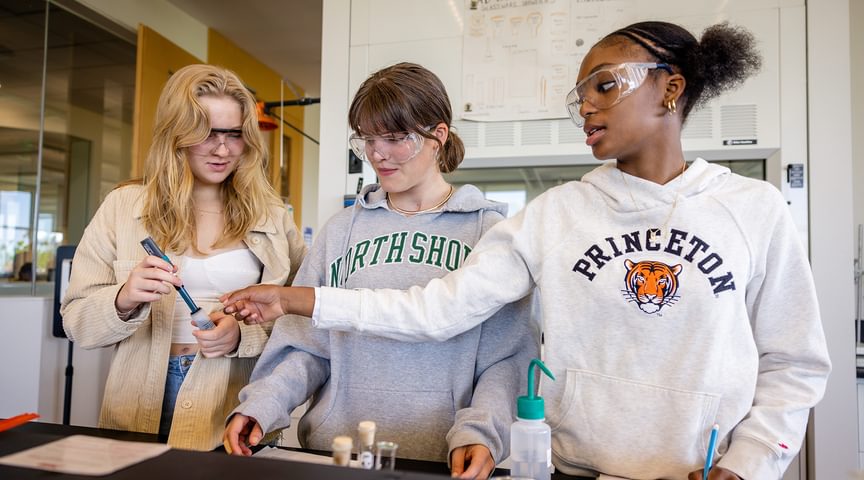
Now | 50 Years of Changing the World
The arrival of Abbot Academy’s students and teachers at PA not only added a new dimension to the classroom, but also helped seed a revolution in gender roles and the progressive movements of Andover in the years that followed.
Ensuing generations have been encouraged to build relationships that foster understanding, mutual respect, varying perspectives, and equal opportunities that encompass a wider representation of inclusivity.
“Students exposed to different people, cultures, and ways of thinking are better equipped to exhibit empathy, and, in turn, focus on being better global citizens," says Tony Rotundo, emeritus instructor in history and social science. "During my time at Andover, some of the biggest and most important changes on campus—from the creation of MLK Day to the Gender and Sexuality Alliance—started with student initiative. That’s what really put PA out in front of other schools.”
Indeed, Abbot Academy’s creative and intellectual force was transformational for PA and has served as a catalyst for all who came after to better shape the kind of world they wanted to live in. Alumni continue to apply their Andover education to break stereotypes, set precedents, and help others who have been traditionally excluded from certain spaces claim their rightful place.
The careers of Susan Chira ’76 and Carroll Bogert ’79 ran on parallel tracks long before they began co-directing The Marshall Project, a Pulitzer Prize–winning, nonprofit news operation covering the criminal justice system.
Both attended Harvard, dove into East Asian studies, worked for prestigious publications (the New York Times, Newsweek), excelled as foreign correspondents (Japan, China), and opened doors for other women coming along behind them.
At Andover, Chira remembers a transitional period when some older teachers had trouble dealing with girls as classroom equals with the boys. After college, she held several top editorial posts at the Times, with a special interest in gender and racial equality issues. Her book A Mother’s Place: Taking the Debate About Working Mothers Beyond Guilt and Blame explored work-life challenges facing working moms like herself.
Beyond her many accomplishments as a reporter-editor, Chira has been honored for her mentoring role with younger journalists. “That’s been intentional and matters a lot to me,” she acknowledges.
Bogert found Andover a “liberating” environment where students had permission to be both smart and ambitious—two qualities that served her well as a frontline reporter in repressive countries like China and the Soviet Union. In 1998, she joined Human Rights Watch, a nongovernmental agency defending human rights worldwide. Her switch to advocacy work was also intentional. “My through-line has been: How does information propel social change?” she reflects. “In a sense, I’ve had a foot in both camps.”
The Marshall Project’s focus on criminal justice—Bogert calls it “the biggest human rights issue” in America today—connects those dots more firmly. Its readership includes prison inmates and their families, and its award-winning journalism has led to such reforms as placing cameras in prisons and legal restraints on the use of police dogs. Nonprofit journalism, yes. But hardly non-impact.
Ruben Alvero ’76 came to Andover from blue-collar roots—both parents were factory workers—where he experienced the school’s early transition to coeducation. He’s gone on to a distinguished career in clinical and academic medicine. At Stanford University Medical School, Alvero is a much-published expert in reproductive fertility medicine. He credits PA with changing his life—providing “the leg up, the vision it gave me. The understanding of the wider world.”
The many who’ve benefited from Alvero’s research and compassionate care know what a difference he has made in their own family lives. Grateful, too, have been members of the Latine community, for whom access to quality (and affordable) health care has been a top priority of his.
In addition to his clinical and advocacy work, for many years Alvero served with the U.S. Army Medical Corps, working in combat support hospitals in Iraq and other hot spots. His patients included many women soldiers serving in active war zones.
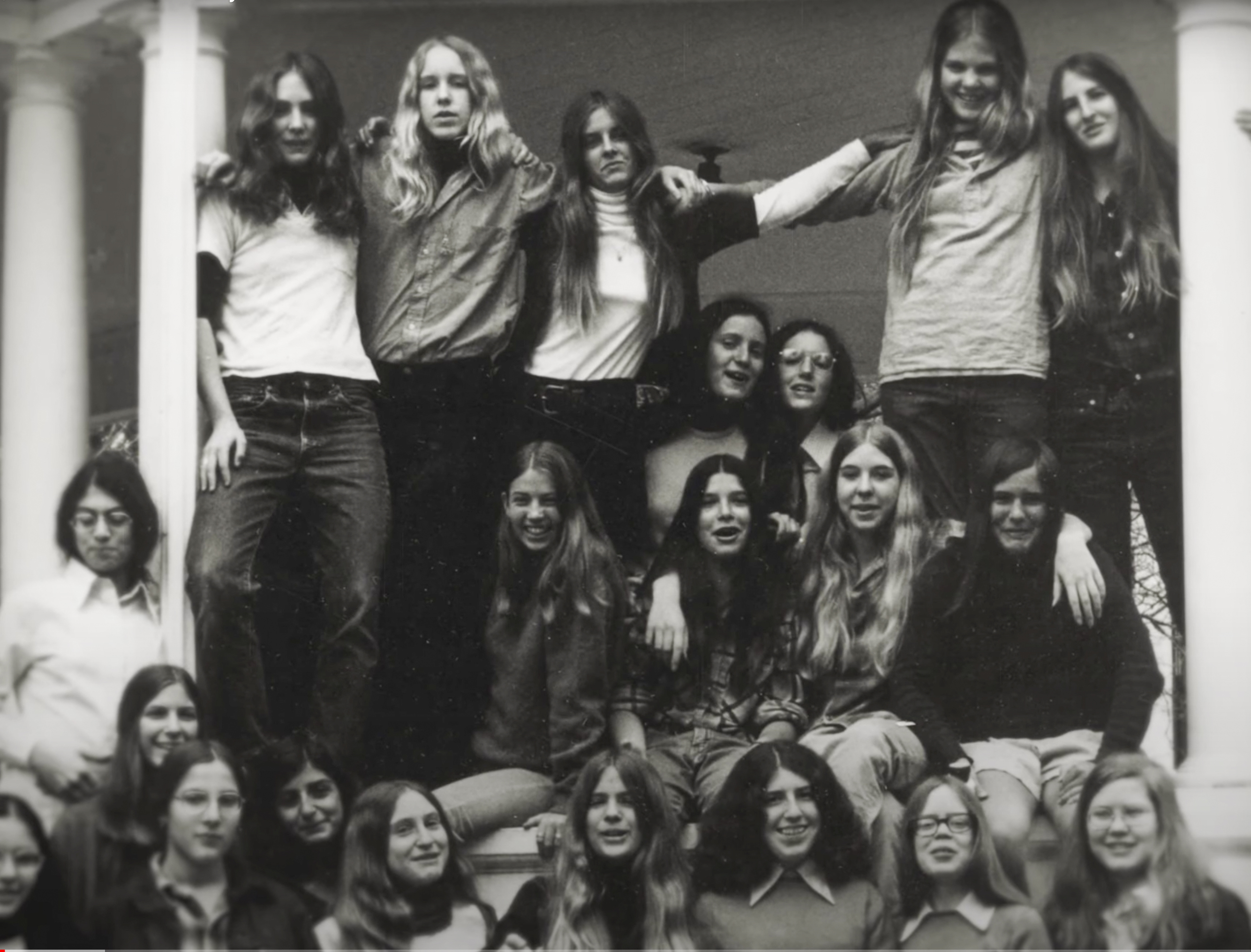
SOME THINGS NEVER CHANGE: The paths of students at Andover—although they are certainly individual—are never solitary. Best friends for life are made here. Whether it's a theory that contradicts old ways of thinking, art that defies conventions, or political and social reforms that change our world for the better—our community empowers what is possible. Courtesy photos: Abbot Academy friends in 1973 and PA friends on the all-gender wrestling team in 2023.
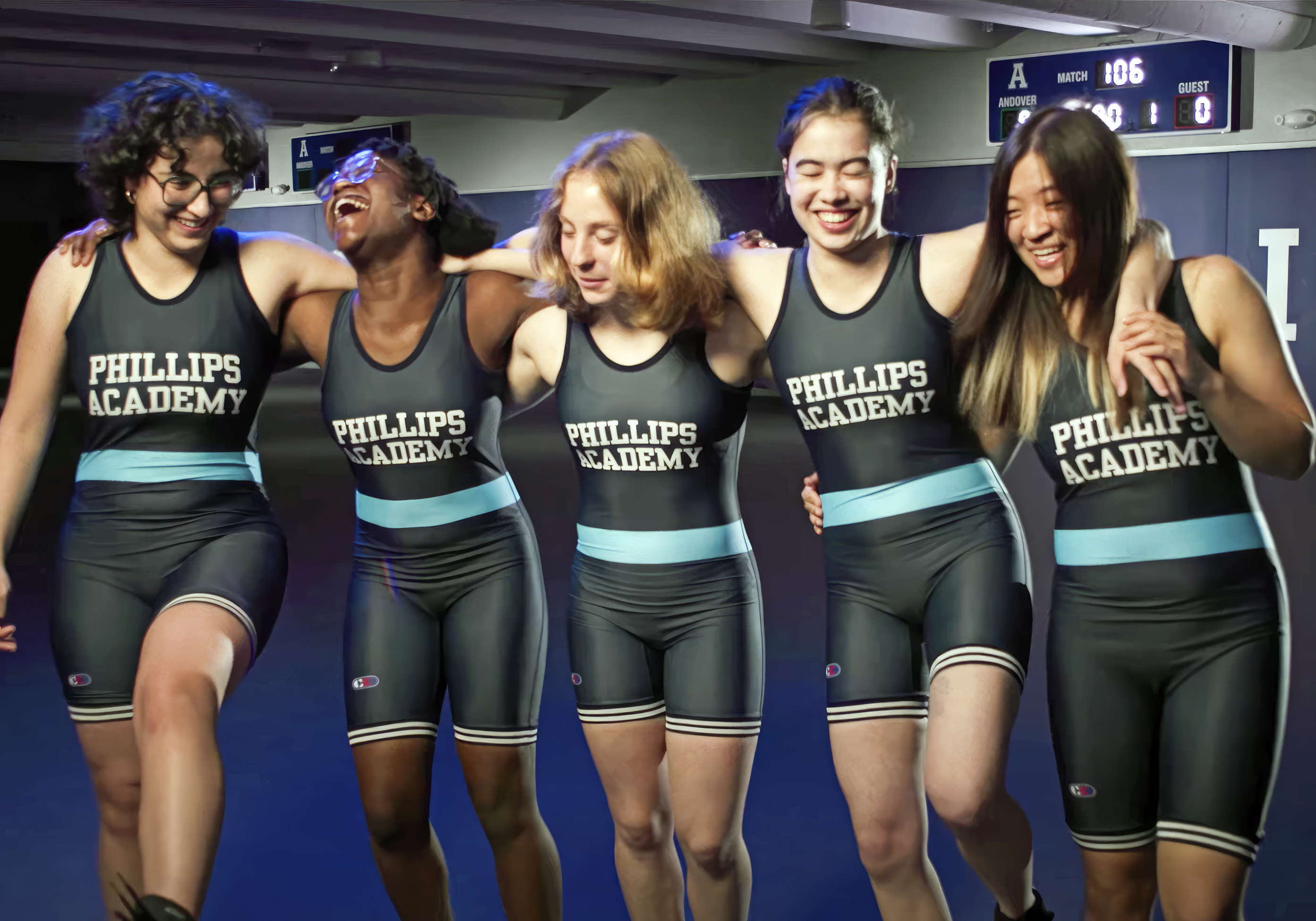
Following George Floyd’s murder in 2020, Torrence Boone ’87, Google’s vice president of global client partnerships, joined a group of Black senior executives evaluating the firm’s policies around racial equality. Beyond existing DEI initiatives, their discussions affected areas like product design, accessibility, and “a broader cultural program of belonging,” as he puts it.
Boone, a devout non sibi adherent, helped Google execute what he calls “a pretty heavy reset” during this period of racial reckoning. Black representation increased companywide, with other major firms closely studying Google’s response.
Boone’s profile as a gay Black man has also made him an important role model for young tech professionals who might otherwise feel marginalized. Unfortunately, he says, many still struggle to feel fully included. “As human beings, we size up others quickly, even if we’re being unfair or reductive.”
Adds Boone, an active Alumni Council member and philanthropist, “Andover opens the aperture for its graduates to think of the collective good beyond their own worldview. And that was certainly a jumping off point for me.”
Brooklyn native Jasmine Mitchell ’99 arrived at Andover through a program helping steer under-resourced students of color into top-tier boarding schools. A leading scholar in race and gender representation in popular culture, Mitchell published her first book, Imagining the Mulatta: Blackness in U.S. and Brazilian Media, in 2020 while teaching at SUNY—Old Westbury. This fall, she joins the faculty at Brooklyn College.
Mitchell’s PA experience—back then, “inclusion,” she says, was often tested along race, gender, and socioeconomic lines—is reflected in her mentorship of young scholars from less-than-privileged backgrounds. “A lot of my research is on mixed Blackness in the U.S. and Latin America,” she notes. “They’re issues I grappled with as a teenager and I’m still grappling with today, along with my students.”
In her classroom, she says, “I warn students they will get very uncomfortable.” The payoff? Lifelong critical thinking skills, plus a deeper grasp of power structures and power struggles. According to Mitchell, awareness of such hierarchies is crucial to envisioning, and perhaps determining, whatever future lies ahead.
Krys Freeman ’03 serves as Airbnb’s senior program manager for design and is an influential strategist and activist in the tech management field, traditionally a white-male–dominated industry.
At Andover, Freeman belonged to Af-Lat-Am and the Queer Student Alliance, organizations helping many like Freeman feel more fully integrated into campus life. “Being queer but not ‘out’ as nonbinary was complicated,” says Freeman, who is now aligned with several groups that empower and educate the tech industry’s LGBTQIA+ community.
The groups include Butch Voices, advocates for “gender-bending social justice activists,” and TransTech, which supports transgender and gender-nonconforming individuals. As a strategist, says Freeman, “I try to make an impact in meaningful ways through mentoring and other skill-sharing, at the same time supporting people at the margins— notably queer and trans people of color—as a committed activist and ‘possibility model’ for younger tech workers.”
With a renewed focus on self-care and mental health in the post-pandemic era, Freeman offers this message to fellow alums: “Double click on me having access and privilege and paying it forward.”
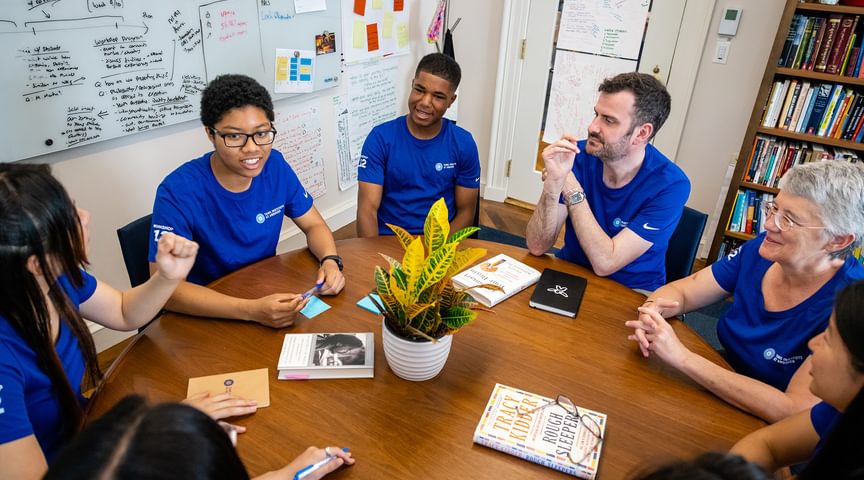
Once Rachel Murree ’14 connected with Alumni House dormmate Annika Neklason ’13, their proximity to the old Abbot campus plus Neklason’s own family history (her mother Peggy Dolgenos ’76 graduated with one of PA’s first coed classes) got them talking about Abbot’s demise and what had happened since.
“It was a story not many on campus knew about,” recalls Murree. Their conversations led to deeper ones about gender dynamics and why student leadership positions were still mostly held by boys.
Supported by the Brace Center, Murree and Neklason collaborated on a study titled “The End of Abbot: How the 1973 Merger with Phillips Academy Became a Takeover.” Deeply researched, it captured both the positives (e.g., a more liberal arts–oriented Academy) and negatives (female students feeling estranged, persistent power imbalances) of combining the two schools 40 years past.
Graduating from Georgetown, Murree returned to Andover for a three-year stint as a teacher, coach, and dorm supervisor. She now works at the University of California, Berkeley, as a financial analyst. Compared to her student days, she says, “Andover is a different place.” From a curricular standpoint, for example, “There’s a big emphasis on inclusivity. Whose voices are being heard? And how are you grading in a way that doesn’t perpetuate stereotypes?”
Neklason graduated from Penn, where she wrote for the campus newspaper then joined The Atlantic’s digital production and audience engagement team. She is currently an assistant editor of The Hill, a D.C.-based newspaper and digital media company covering Congress, the White House, and the intersection of politics and business.
For her, Andover was “a place where everyone was interested in everything,” notwithstanding its nagging boy-girl leadership gap. Not long after their 40th anniversary study, PA students began electing school co-presidents.
A third-year Yale Law student, Karissa Kang ’17 has a promising legal career ahead of her. Her efforts to expand Andover’s idea of diversity and inclusion may have helped pave the way.
In 2015, Kang wrote a Brace Center paper proposing PA create its first all-gender dorms. Citing a survey finding roughly 30 students identified as transgender, gender-fluid, or nonbinary, her paper led to a task force study and eventual plan approval in 2017. Andover thereby joined a growing contingent of boarding schools offering all-gender housing.
The goal, as former head of school John Palfrey P’21 stated, was to “support all our students equitably and create an inclusive community.”
Kang, who personally lobbied then–board president Peter Currie ’74, P’03, for his support, doesn’t remember much organized pushback. “There were parents with good intentions concerned about how a dorm like that would function,” she says, but everyone adjusted, and a new housing chapter began.
Kang herself has continued advocating on behalf of “othered” individuals. She and her father, a law professor, recently shared authorship of a published paper proposing changes in how TSA agents screen transgender passengers.
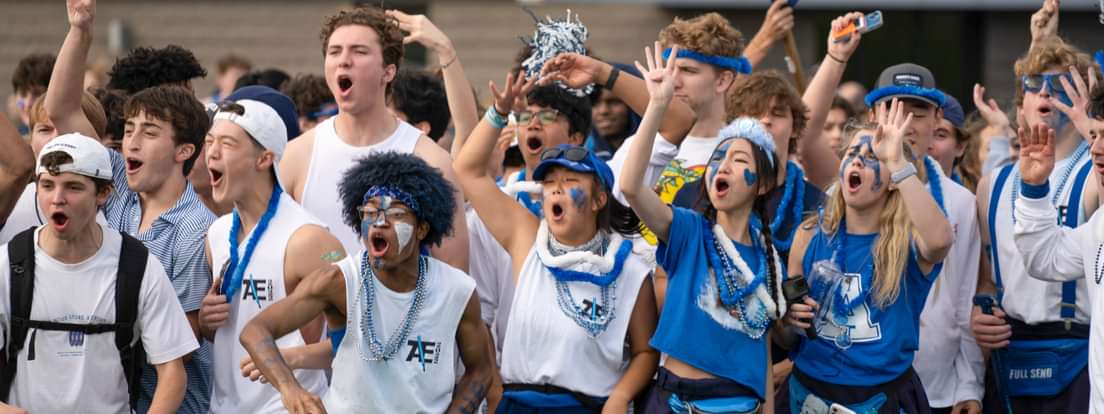
Next | Charting a Collective Future of Belonging
BOLDNESS. INNOVATION. CARING. These values are the cornerstone of the Abbot Academy Fund, yet they more broadly encompass the legacy of Abbot Academy and the future aspirations of Andover.
Examples of Abbot’s impact today—and on the Academy’s future—can be found in every facet of campus, from the need-blind admission policy to the first all-gender restroom (proposed by a student) to ongoing support for the Brace Center.
“Perhaps the most meaningful and lasting impact that Abbot has had at Andover is one of accountability,” explains the Reverend Gina M. Finocchiaro ’97. “I can still hear Jean St. Pierre, a beloved favorite English teacher of mine [who taught at Abbot and PA for 41 years], bemoaning the inequities of access for girls when Abbot first came up the Hill. The merger of the schools meant that Andover—as a whole—made a commitment to all students.”
Recognizing the need to maintain and amplify Abbot’s values into the future, a group of Abbot trustees, including Myndie Nutting ’40, Beverly Floe ’41, Mel Chapin ’36, P’59, GP’90, ’94, ’10, and Phil Allen ’29, P’52, ’53, GP’79, made a bold move in 1973 by taking $1 million out of Abbot’s endowment to form the Abbot Academy Association, now known as the Abbot Academy Fund (AAF). The idea was to have Abbot Academy alive and well as a funding agent within the new institution.
"Abbot funded research seed money for Andover Bread Loaf, which promotes literacy through the lens of social justice. None of the outreach work we do could have happened without Abbot." — Lou Bernieri P ’96, ’10, English instructor and founder of ABL
Since 1973, the AAF has awarded more than $15 million toward proposals from students, faculty, and staff. Funded projects have included Non Sibi Day, the Brace Center for Gender Studies, Andover Bread Loaf, the Abbot Academy Dance Suite, mental health awareness and support, student clubs, and—most recently—Falls Hall, a state-of-the-art music facility currently under construction, for which the AAF pledged $1.25 million and Board of Trustees President Amy Falls ’82, P’19, ’21, and her family are the lead donors.
“The creators of the fund,” says founding board member Betsy Eaton ’62, “would be astounded at what it has become. I grew my wings at Abbot. This is what we hoped the Abbot Academy Fund would do for other students. Abbot’s there, and I feel it.”
Viewed for the first time during Reunion 2023, the documentary Dream It, Do It: The Abbot Academy Fund’s First 50 Years brings the legacy of Abbot and the AAF to life.
“The new beginning created by the merger of Abbot Academy and Phillips Academy produced an environment that continues to benefit many,” says filmmaker Alexandra Morrow ’12. “When I think back to my time at Phillips Academy and all the ways it transformed me, I see now that Abbot was always there too—weaving its spirit through campus in many ways, as it will be for years to come.”
What will come next? It’s exciting to imagine how Abbot programming, scholarship, and innovation will continue to enhance PA—and the countless ways its enduring reputation for fostering independent thinking will inspire the Andover community, most importantly students.
“For me, hosting events like Take Back the Night and our Brace fellow talks in Abbot Hall is a way to commemorate Abbot’s legacy and is a reminder of how far Andover has come in the realm of inclusion since becoming coeducational,” says Max Berkenblit ’24, a Brace fellow and member of the center’s student advisory board. “Abbot remains a powerful influence for students, faculty, and alumni.”
Years after coeducation, also years after women’s liberation and the assertion of women’s legitimacy in our society, students’ respect, pride, and appreciation for the Abbot legacy holds stronger than ever.
”To learn more, and share your reflections of Abbot Academy and Phillips Academy as a singular institution, click here.
Other Stories
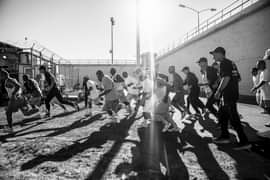
Filmmakers Christine Yoo ’86 and Hella Winston ’86 take viewers behind the scenes of a unique marathon




